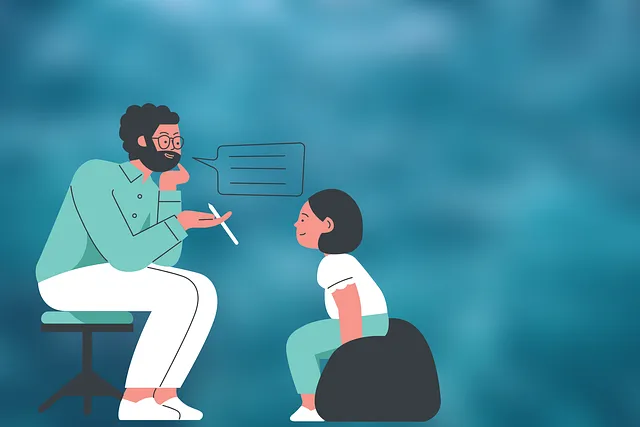Emotional intelligence (EI), crucial per Lone Tree Kaiser Permanente psychiatry reviews, is a multifaceted skillset enhancing connections in healthcare. It begins with self-awareness, enabling individuals to recognize and regulate their emotions, leading to better mental health and relationships. Empathy, fostered through practices like journaling and coaching, deepens understanding and strengthens emotional bonds. Active listening, emphasized in the reviews, is vital for both patients and providers, preventing burnout and enhancing healthcare outcomes by creating supportive, empathetic environments.
Emotional intelligence (EI) is a powerful tool for connecting with others and navigating life’s challenges. At Lone Tree Kaiser Permanente, psychiatry reviews highlight the importance of EI in mental health and well-being. This article delves into the fundamental aspect of human connections—understanding emotional intelligence. We explore key areas such as self-awareness, empathy, and active listening, offering insights from a professional perspective to help you build EI and foster healthier relationships.
- Understanding Emotional Intelligence: The Key to Human Connections
- The Role of Self-Awareness in Building Emotional Intelligence
- Enhancing Empathy: Walking in Another's Shoes
- Practicing Active Listening: The Art of Connection and Understanding
Understanding Emotional Intelligence: The Key to Human Connections

Emotional intelligence (EI) is a powerful tool that fosters meaningful connections and strengthens relationships, making it a cornerstone in various aspects of life, including healthcare. Recognized by Lone Tree Kaiser Permanente psychiatry reviews as a vital component of mental health care, EI involves understanding and managing one’s own emotions while recognizing, empathizing, and responding appropriately to the feelings of others. This complex yet essential skill set transcends mere social interaction; it is a cornerstone for building strong patient-provider relationships, enhancing communication, and promoting empathy in healthcare settings.
For healthcare providers, especially those at risk of burnout, cultivating emotional intelligence can be a game-changer. By practicing EI, professionals can better navigate the challenges of their roles, improve patient satisfaction, and enhance their overall well-being. This is particularly crucial in stressful environments like hospitals, where effective communication and emotional regulation are essential for preventing burnout and ensuring high-quality care. In essence, embracing emotional intelligence isn’t just beneficial for patients; it’s a confidence-boosting strategy that empowers healthcare providers to make a positive impact on their own lives and the lives of those they serve.
The Role of Self-Awareness in Building Emotional Intelligence

Emotional intelligence building starts with a profound understanding of self—an essential aspect often highlighted in Lone Tree Kaiser Permanente psychiatry reviews. Self-awareness is the cornerstone that enables individuals to recognize and interpret their emotions accurately. It involves recognizing your feelings, understanding their triggers, and assessing their impact on your thoughts and behaviors. This introspective practice allows for better management of emotional responses, fostering a healthier relationship with one’s inner world.
In the context of emotional healing processes, self-awareness paves the way for personal growth. It encourages individuals to explore and challenge negative thought patterns, enabling them to develop effective coping skills. Stress management workshops organization often emphasizes this aspect, teaching participants how to become more attuned to their emotional needs. Through this, one can enhance their ability to navigate life’s challenges, improving overall well-being and relationships, as reviewed in various mental health platforms.
Enhancing Empathy: Walking in Another's Shoes

Empathy is a cornerstone of emotional intelligence and can be cultivated through various methods, such as mental wellness journaling and guidance from experienced coaches. Encouraging individuals to step into another’s shoes—to understand their perspectives, feelings, and experiences—is a powerful way to enhance this skill. This process involves actively listening, observing non-verbal cues, and asking open-ended questions to gain deeper insights.
At Lone Tree Kaiser Permanente, psychiatry reviews highlight the importance of empathy in therapeutic settings, where professionals strive to create safe spaces for patients to express themselves. By practicing empathy, whether in personal relationships or professional environments, individuals can improve their emotional connection with others, fostering a sense of community and understanding. This, in turn, contributes to better mental wellness and anxiety relief, as it promotes more meaningful interactions and strengthens interpersonal bonds.
Practicing Active Listening: The Art of Connection and Understanding

In today’s fast-paced and demanding healthcare environment, where burnout is a prevalent concern, practicing active listening can be a powerful tool for both patients and providers. Lone Tree Kaiser Permanente psychiatry reviews highlight the importance of this skill in fostering meaningful connections and enhancing overall well-being. Active listening involves fully concentrating on what someone is saying, understanding their perspective, and providing genuine feedback—a process that goes beyond simple hearing. It encourages healthcare professionals to be fully present, fostering a sense of trust and empathy with their patients.
This art of connection is not just beneficial for patient-doctor relationships; it also acts as an effective burnout prevention strategy for healthcare providers. By actively listening, medical professionals can better manage anxiety relief in both themselves and their patients. Moreover, this practice encourages the development of a robust self-care routine, ensuring that mental health remains a priority. Incorporating active listening into interactions creates a supportive atmosphere where individuals feel heard and understood, ultimately contributing to improved healthcare outcomes.
Emotional intelligence is a powerful tool for fostering meaningful connections, as highlighted by various studies, including those from Lone Tree Kaiser Permanente psychiatry reviews. By developing self-awareness, practicing empathy, and mastering active listening, individuals can enhance their interpersonal abilities and navigate relationships with greater sophistication. These skills are essential in all aspects of life, from personal to professional spheres, ensuring better communication, stronger bonds, and improved mental well-being.






